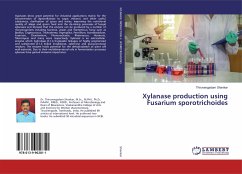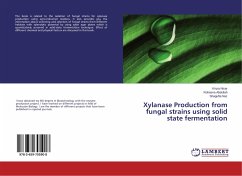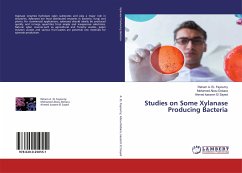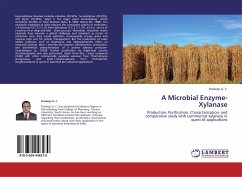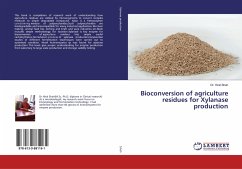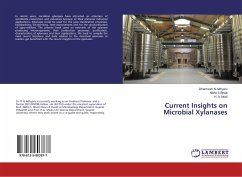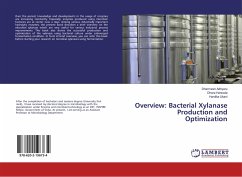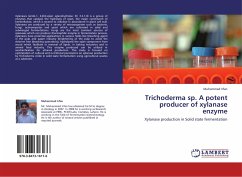Xylanases show great potential for industrial applications mainly for the bioconversion of lignocelluloses to sugar, ethanol, and other useful substances, clarification of juices and wines, improving the nutritional quality of silage and green feed and the de-inking processes of fungal xylanases and showed that the enzyme can be produced by a number of microorganisms including bacteria, yeasts and filamentous fungi such as Bacillus, Cryptococcus, Trichoderma, Aspergillus, Pencillium, Aureobasidium, Fusarium, Chaetomium, Phanerochaete, Rhizomucor, Humicola, Talaromyces and many more respectively. Xylanase is an extracellular enzyme which hydrolyses beta-1,4 D-xylosidic linkages of highly polymerized and substituted beta-1,4 linked D-xylobiose, xylotriose and giucucoronosyl residues. The enzyme holds potential for the dehydradation of plant cell wall materials. Due to their multidimensional role in fermentation processes xylanase have gained immense importance.
Bitte wählen Sie Ihr Anliegen aus.
Rechnungen
Retourenschein anfordern
Bestellstatus
Storno

